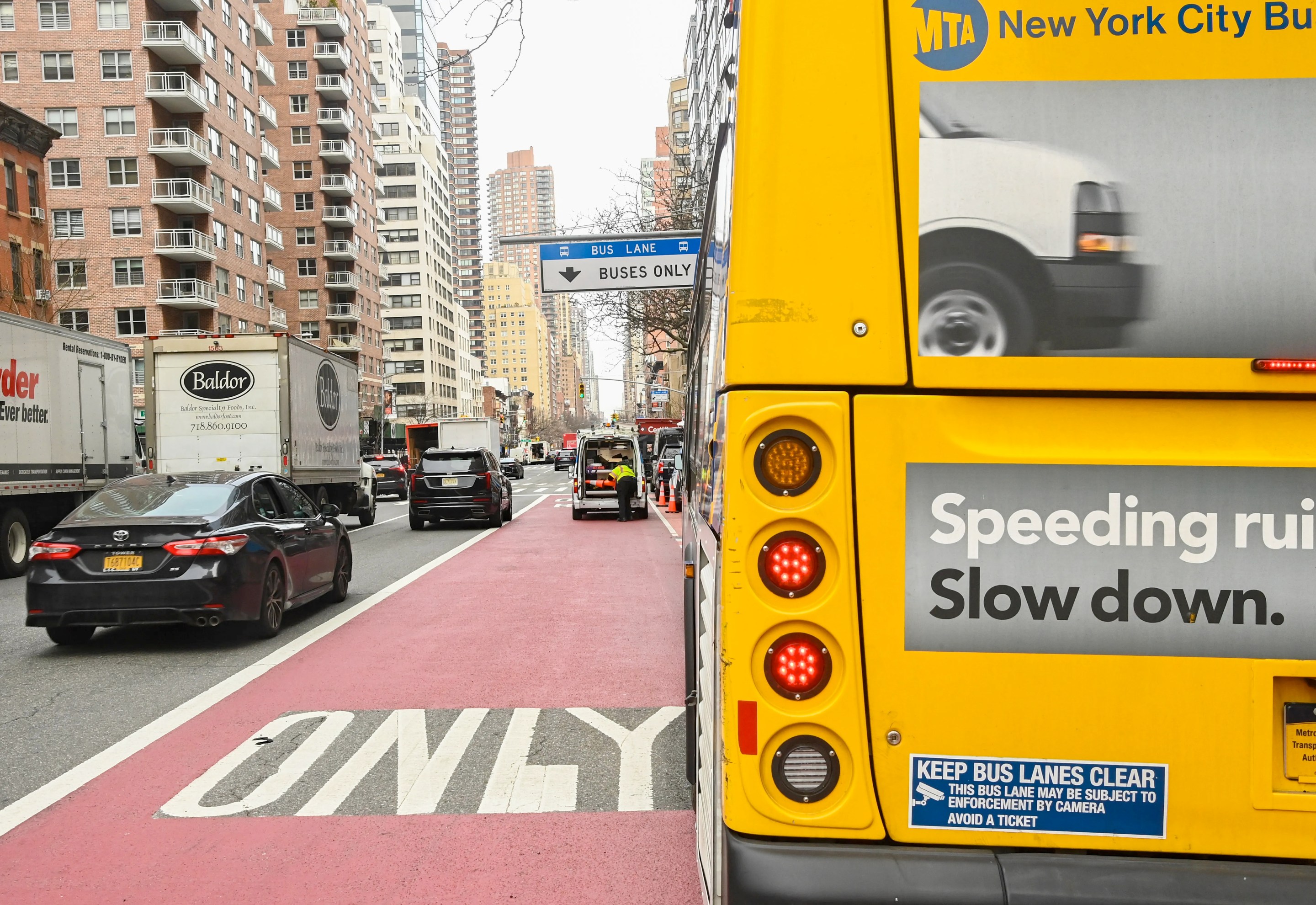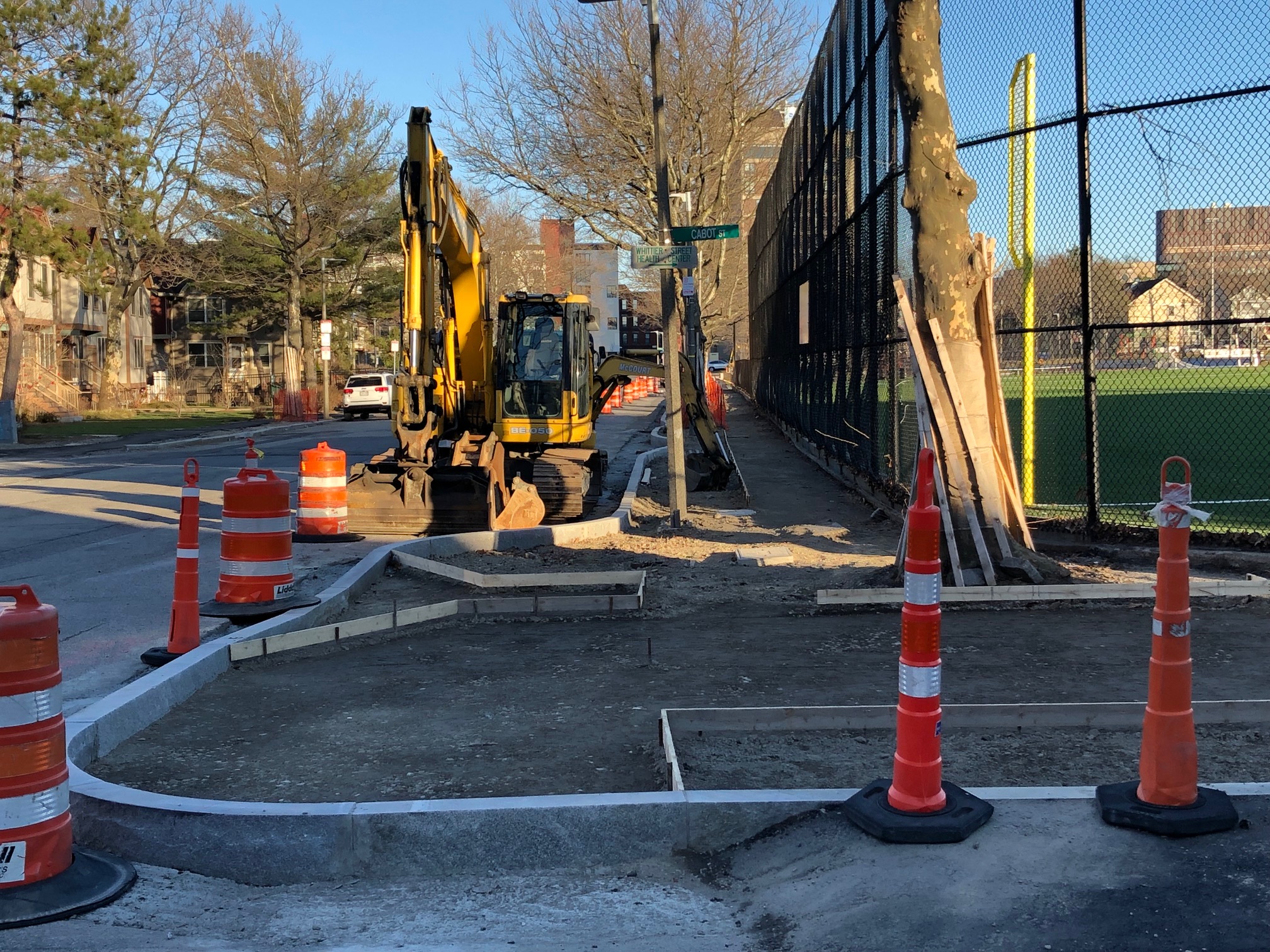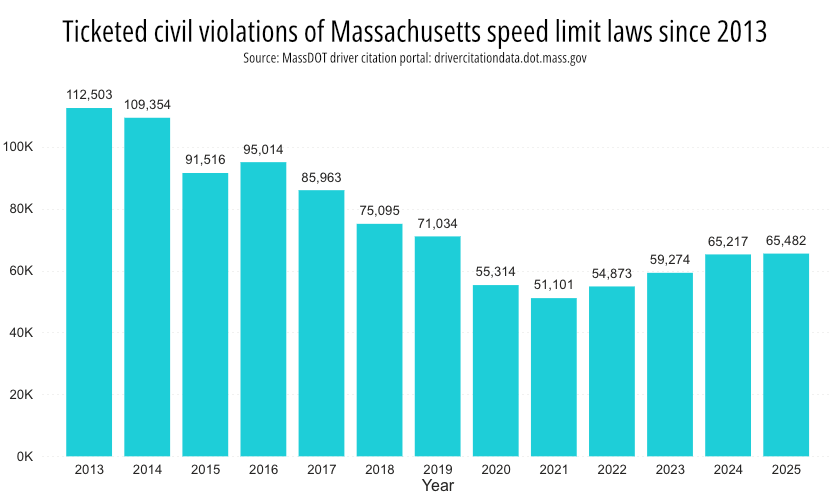In the waning days of 2024, a skeleton crew of lawmakers on Beacon Hill enacted two new laws that would let transit agencies and school districts start using bus-mounted cameras to enforce traffic laws related to bus stops and bus lanes.
In a brief "informal session" on the day after Christmas, five lawmakers in a mostly-empty House chamber approved, by a voice vote, "An Act relative to bus lane enforcement," a bill that would allow public transit agencies to use bus-mounted cameras to record and issue fines against illegal parking in bus lanes and bus stops.
The bill had previously passed in the Massachusetts Senate this summer, just before the August 1 deadline when the Massachusetts Legislature ends its formal sessions for the year. On Monday, the Senate assented to the House version of the bill, and sent the legislation to the Governor's desk.
Meanwhile, lawmakers in the Senate made a similar last-minute move to pass "An Act concerning the safety of school children embarking and disembarking school buses," a bill that will allow cities and towns to use cameras to identify and record vehicles that illegally pass stopped school buses.
That bill had previously passed the Massachusetts House on July 30.
Automatic fines
If the Governor enacts these laws, public transit agencies will be allowed to start using cameras mounted on buses to record vehicles that are parked illegally in bus stops and bus lanes and issue fines against their owners.
The transit bus lane enforcement bill sets a minimum fine of $25 and a maximum of $125 for bus lane violations, and a flat $100 fine for bus stop violations.
For illegally passing a stopped school bus, the school bus camera enforcement bill would apply the same fines that are already established under current Massachusetts law: $250 for a first offense, $500 for a second offense, and $1,000 for a third offense.
Both laws also specify that bus lane and bus stop violations caught on camera would be exempt from a driver's motor vehicle operating record, and wouldn't be considered "moving violations" that would affect insurance premiums.
The transit camera enforcement bill would also let municipal governments install stationary cameras at bus stops to prevent illegal parking in bus boarding areas, which can be a serious safety hazard for mobility-impaired riders.
Cameras yield faster buses
In New York City, where the Metropolitan Transportation Authority (MTA) has been using cameras to enforce bus lanes since 2019, officials say that the technology is an effective tool to make buses run faster and more reliably.
“We know automated enforcement changes driver behavior, with more than 80 percent of bus lane blockers never receiving more than one ticket," said New York City Department of Transportation Commissioner Ydanis Rodríguez in a press event announcing the expansion of camera-based enforcement to 14 more bus routes earlier this year.
The MTA found that adding enforcement cameras to a bus route increases average bus speeds by 5 percent, reduces air pollution emissions by 5 to 10 percent, and reduces the number of crashes by 20 percent.
Peabody, Salem school buses have a head start on implementation
School districts in Peabody and Salem have already installed bus-mounted cameras that would be capable of enforcing the new law, if it's implemented.
Both cities have partnered with private tech company BusPatrol to conduct studies of how frequently drivers threaten their students with illegal passing near buses.
In Peabody last year, BusPatrol installed cameras on 10 school buses, and recorded 3,412 instances where those driving cars did not stop for the school buses.
The MBTA has been interested in adding cameras to its buses to help clear blocked bus lanes and bus stops.
A 2022 "request for proposals" for new electric buses included "an option for the contractor to provide a license plate reader system" on some of the new buses that the T plans to buy over the next few years.
An MBTA spokesperson told StreetsblogMASS that the T currently has no buses that are equipped with plate-reading cameras, but added that "the fleet can be retrofitted with the technology as needed."






